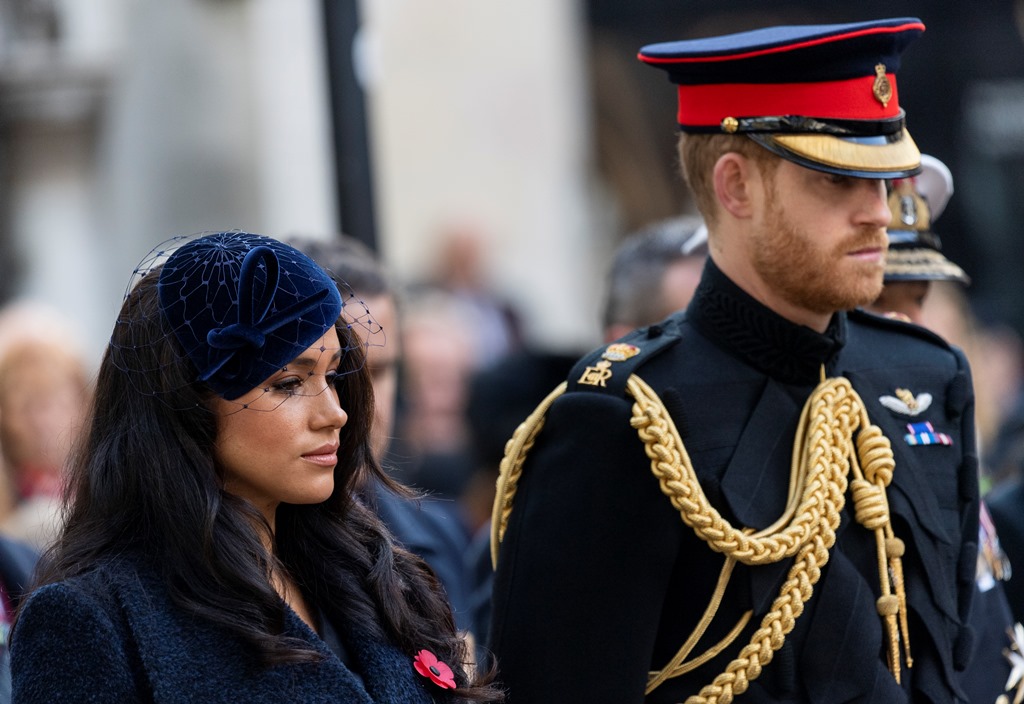Intro for November 25, 2020



Dear Gossips,
In a piece for The New York Times, Meghan Markle has revealed that she suffered a miscarriage in July. She writes in her essay that through the experience, she and Prince Harry learned that “in a room of 100 women, 10 to 20 of them will have suffered from miscarriage. Yet despite the staggering commonality of this pain, the conversation remains taboo, riddled with (unwarranted) shame, and perpetuating a cycle of solitary mourning”. And this is part of the reason why she decided to open up about her own pregnancy loss. This tweet articulates what her story means to so many people:
When I had a miscarriage, I remember scouring the internet for articles by women who had been through the same thing. Because reading that you're not alone is helpful and it's comforting. So thank you to Meghan Markle for writing about something so difficult
— Anita Singh (@anitathetweeter) November 25, 2020
That was also why Chrissy Teigen and John Legend posted about their pregnancy loss a couple of months ago, including intimate photos from the actual moment. As they shared on Good Morning America yesterday, it didn’t matter to them that it would be controversial because, per Chrissy, “It's designed for the people that were hurting”. Those are the people who matter.
And while she also admitted that John was initially uncomfortable taking those pictures, because he didn’t want to prolong the pain, in the end, he sees the value in the decision – and he captures that in a beautifully devastating way in this quote:
"I was, like, worried. I was like, 'I don't want to, like, commemorate this pain.' But the crazy thing about having a miscarriage is you don't walk away with anything. You have this emptiness and we wanted to take the photos so that we had something to remember it by."
EXCLUSIVE: @chrissyteigen and @johnlegend open up on pregnancy loss and how the experience brought them closer together. Now they have a new mission to help support families with sick children. https://t.co/SUzrfqqXrL pic.twitter.com/cGmL4ML37U
— Good Morning America (@GMA) November 24, 2020
For Meghan Markle, there’s also the reality of being pregnant and Black. Research has shown that Black women are at higher risk for pregnancy complications and pregnancy loss. Per this piece in Ebony in 2015 by Omise’eke Natasha Tinsley:
“Rates of every kind of pregnancy loss — miscarriage, stillbirth, preterm birth and infant death — are significantly higher for black women than for any other racial group. The National Institutes of Health finds Black women are twice as likely as white women to suffer late pregnancy loss and stillbirth.
No genetic factors have been isolated to explain this discrepancy, and rates of loss do not vary significantly by socio-economic status. Affluent, highly educated Black women and working-class Black women are just as likely to suffer pregnancy loss. This leads pregnancy loss expert Elizabeth Czukas to speculate, “the continuous, low-grade stress of racism may be the factor that unifies all African-Americans, and may contribute to the increased risk of pregnancy loss.”
Meghan has chosen to share her and Prince Harry’s loss pretty much on the third anniversary of their engagement announcement. It was on November 27, 2017 that they confirmed that they were getting married. Of course we don’t know whether or not this is deliberate timing but there is a poignancy to it, and a reminder that the goal of a relationship is to ride the highs together but also to support each other through the lows. Clearly, the Sussexes have been THROUGH it. Meghan, in particular, has been through it. In her piece, she does not mention the racism she’s experienced but when you consider the information above and the bullsh-t she’s had to endure, the conversation is right there.
And this is her intention – for more conversation, and in particular conversations that begin with “Are you OK?” That question also has an anniversary. We just passed the one year anniversary of her comment, during their South African tour last year, when asked how she was, about how seldom she’d heard it. “Not many people have asked if I’m OK,” she said at the time. And if you’ve been following all the royal drama, you know the fallout from that statement. One year later, she has now reframed that remark into a moment of solidarity in shared loss and a call for empathy.
Yours in gossip,
Lainey
